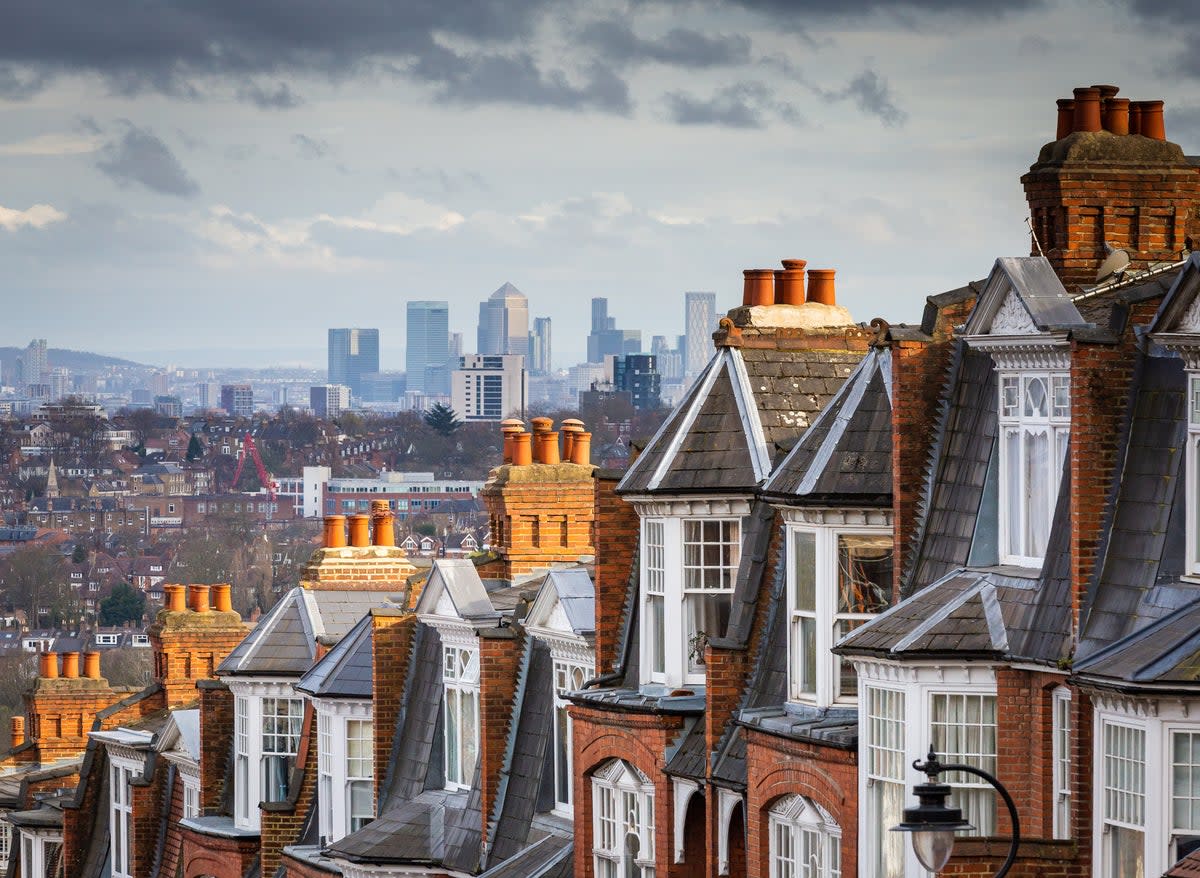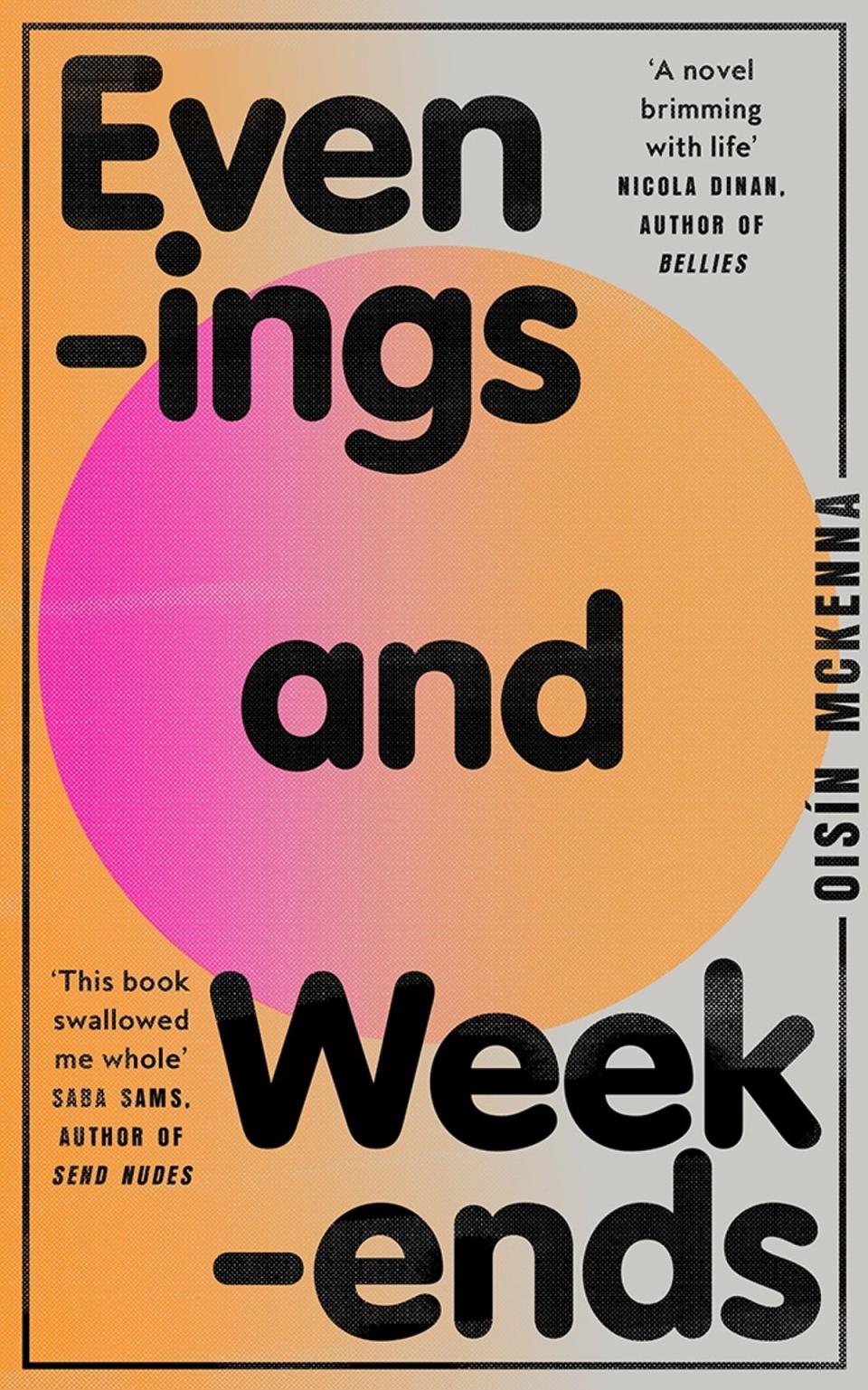Has London become ‘uninhabitable’ for the younger generation?

When a man is tired of London, as the much-paraphrased Samuel Johnson quote goes, he is tired of life. This was probably a deeply smug thing to say back when Johnson was chatting to Boswell in his 18th-century heyday, but in the years that have elapsed since then, it has only become more insufferable – the sort of commonplace that is written on gift shop mugs, or quoted in online round-ups of “the 100 best things to do in London” that are crammed with affiliate booking links to escape rooms and giant games of Monopoly. Mostly, though, it now just feels mocking. Because to exist in London as a young person is to be constantly exhausted.
This is certainly the case for the three protagonists of Oisín McKenna’s debut novel Evenings and Weekends, which is set over the course of two unbearably hot days in the capital in the summer of 2019. Maggie and her boyfriend Ed, new to their thirties, are expecting a baby, a development that is “not necessarily unwelcome” but “certainly unplanned”. Both of them have spent the past decade precariously: short-term contracts, low-wage jobs, gig economy. A child, they decide, “couldn’t have survived their flat in Hackney” – riddled with a chronic damp that has “affected [Ed’s] breathing, his work, their sex life”. A return to their hometown, Basildon, feels like the only option.
Maggie is working herself up to break the news to her long-time best friend Phil, bracing herself for his confusion: they worked so hard to escape suburban Essex, so why is she retreating now? Phil’s adolescence was blighted by homophobia; in London, he has built a life that he just about likes, living alongside 11 other people in an old warehouse in Bermondsey. “The rent is cheap, the building huge and beautiful,” McKenna writes. But, inevitably, there is a catch, a sense of contingency hovering over the whole arrangement: Phil and his housemates are property guardians, with “no legal rights, no legal contract, and they could be evicted at a moment’s notice”. Even the people he’d assumed would stick out London life a little longer are making surreptitious plans to move to Folkestone.
McKenna’s book captures what it feels like to be worn out by the constant calculations, and adjustments and uncertainties that so often underpin a London life: where will I be this time next year, when the landlord pushes up the rent to keep pace with all the other landlords? What happens if my rent outpaces my monthly salary? What is the black mould behind my wardrobe doing to my insides? How long can I keep all of this up? Of course, there are still flashes of the energy and exhilaration that have kept Maggie and co in the city for so long (not least the joyful chaos of a too-hot summer evening). Her flat sums up this push-pull dynamic: it is “the best place she’s ever lived” and “it’s also uninhabitable. Both are true at once”. Anyone who has done a stint in London, or probably any major city, surely has had a home like this (mine had quarterly rat infestations and a carpeted kitchen).
But for the most part, those glimmers of possibility are just that. Ali, a friend of Maggie’s, puts paid to any romantic ideas about the city being ripe with potential. “Nothing ever happens,” she says. “People keep their heads down. They mind their own business. People in London are too tired to be colliding with each other all the time.” It feels like the character has inadvertently called time on a certain type of London novel: the kind where the disparate stories of disparate people are woven together to create a teeming, urban story. Now everyone’s lives are siloed by stress and worry; that kind of connection, the sort you read about in city stories like Bleak House or White Teeth, feels slightly fantastical. Caledonian Road, Andrew O’Hagan’s recent door stopper of a state-of-London-and-the-nation novel, only gets away with its Dickensian web of interdependence because its protagonist, a celebrity art historian, has sufficient leisure time to pursue those connections with the upper- and under-classes.

Inevitably, then, the modern London novel often becomes a “should I be leaving London?” novel, not least because many authors, belonging to a younger, more economically precarious generation, will have grappled with the same dilemma in their own lives. Whether characters act upon it or not, it’s a question that is always hanging over them; it might not be a permanent solution – in McKenna’s book, Maggie and Ed’s current postcode is not entirely to blame for their relationship problems – but entertaining it may afford them a moment of respite, an exhalation. It’s a motif for many debut writers. Jo Hamya’s 2021 novelThree Rooms sees its twentysomething narrator attempt to build a London life, only to be ground down by low pay and a fraught housemate situation; her journey back to her parents’ home is a matter of when, not if. And in Anna Glendenning’s An Experiment in Leisure, published in the same year, protagonist Grace vacillates between a north London flat share and her mum’s home in Yorkshire, before eventually cutting ties with the capital for good.

Leaving London, Ali suggests in Evenings and Weekends, “is like leaving an afterparty at a sensible hour. The party is still fun, everyone’s having a great time [...] but soon, the sun will rise, and everyone will be zombified”. Her words feel a bit like an empty consolation – because saying goodbye to the place where you’ve spent years putting down roots is wrenching. It places an awkward invisible barrier between friends like Maggie and Phil, too: he sees her decision as an implicit judgement on his own choices; she thinks he will view her as “suburban, normie, boring”. But even his London life feels like it may have a built-in expiration date too. Because, as Maggie puts it: “Not everyone can afford to f**k around in London forever.”
‘Evenings and Weekends’ by Oisín McKenna is published by 4th Estate on 9 May, £16.99

 Yahoo News
Yahoo News 
